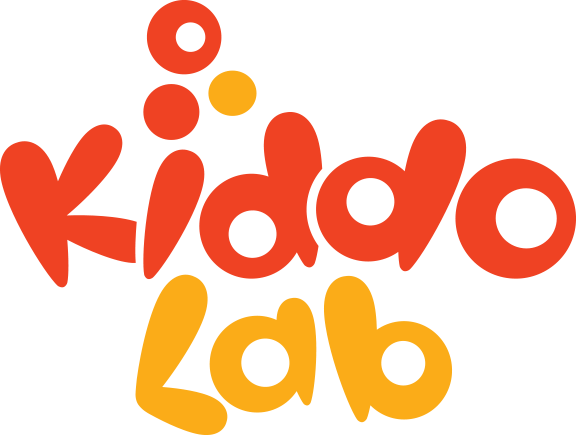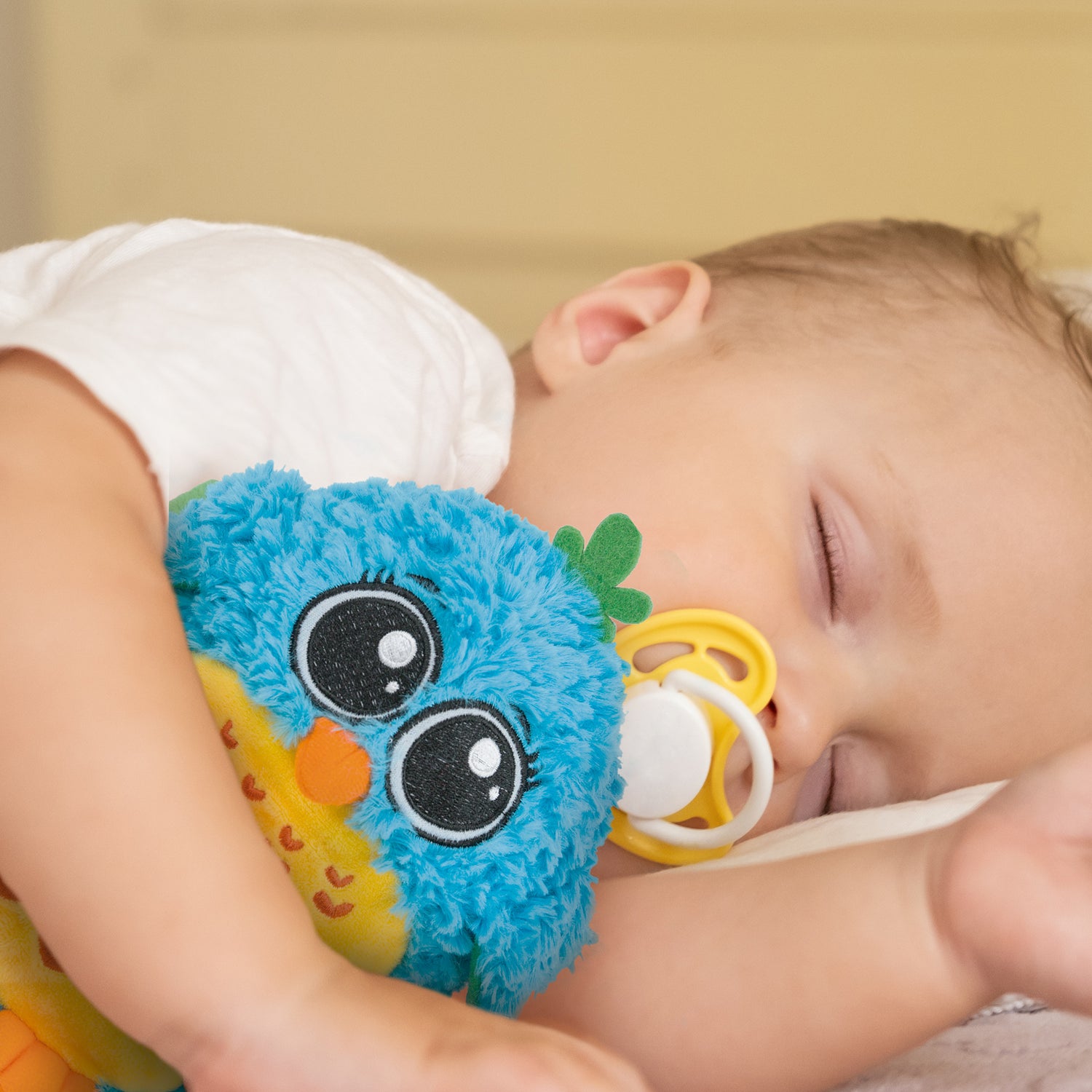Introduction to Playground Communication
In the vibrant world of childhood play, playgrounds stand as pivotal arenas for social development. Here, amidst the laughter and energy, children learn the art of communication, a skill as crucial as any academic pursuit. As parents and guardians, guiding your child through this maze of social interaction can be both challenging and rewarding. This article, brought to you by Kiddolab, explores practical methods to nurture your child's communication skills on the playground, laying a foundation for lifelong social competence.
The Role of Educational Toys in Social Skills
Kiddolab, a leader in educational toys for children aged 18 months and up, believes in the power of play to develop essential life skills. Their range of toys, designed with the input of child development experts, offers more than just entertainment. These toys serve as tools to enhance your child's ability to communicate, share, and cooperate with peers.
Why Kiddolab?
Kiddolab's toys are more than just playthings; they are catalysts for social interaction. Each toy is designed to encourage cooperative play, a fundamental aspect of learning to communicate on the playground. For instance, their interactive playsets invite children to engage in shared activities, teaching them to express themselves, listen to others, and develop empathy.
Tips for Encouraging Positive Interactions
-
Model Positive Behavior: Children learn by example. Demonstrate how to initiate conversations and show kindness in your daily interactions.
-
Playgroup Participation: Regular playgroup sessions provide a controlled environment for your child to practice communication skills. Incorporate Kiddolab toys into these sessions to facilitate group play.
-
Teach Basic Etiquette: Simple phrases like 'please', 'thank you', and 'can I join?' are building blocks of playground communication. Role-playing games using educational toys can make learning these phrases fun and memorable.
Kiddolab's Contribution to Your Child's Journey
At Kiddolab, we understand the importance of early childhood development. Our products are meticulously crafted to align with the developmental needs of children, focusing on enhancing their communication abilities in a fun and engaging way. By integrating our toys into your child's play routine, you empower them with the tools needed for effective playground communication.

Enhancing Emotional Intelligence through Play
Emotional intelligence is a key component of effective communication, especially on the playground. It involves recognizing and understanding both one’s own emotions and those of others. Kiddolab's range of toys, including interactive dolls and emotion-themed games, are perfect tools for fostering this understanding in a playful context.
Interactive Learning with Kiddolab:
Utilizing Kiddolab's toys, parents can create scenarios where children identify various emotions and learn appropriate responses. For example, a doll that expresses different emotions can be a springboard for discussions about feelings and empathy, vital for playground interactions.
The Power of Storytelling in Communication
Storytelling is a captivating way to enhance a child's communication skills. It encourages imagination, vocabulary development, and the ability to understand and convey complex ideas. Kiddolab's story-based toys and interactive books are designed to engage children in storytelling, providing a fun way to develop narrative skills that are essential for playground conversations.
Kiddolab’s Storytime Toys:
Imagine a toy that not only tells a story but also invites your child to be a part of it. Kiddolab's interactive storytime toys do just that. They are not only fun but also a medium for children to learn sequencing, cause-and-effect, and the nuances of storytelling - all crucial for effective communication.
Encouraging Cooperative Play
Playgrounds are social hubs where cooperative play is a natural occurrence. Engaging in activities that require teamwork helps children understand the importance of communication in achieving common goals. Kiddolab’s toys are designed to encourage cooperative play, making them excellent aids for parents in this aspect of child development.
Teamwork with Kiddolab:
Toys like building blocks or collaborative puzzle games from Kiddolab encourage teamwork and communication among children. They learn to express their ideas, listen to others, and work together towards a common goal, mirroring the dynamics of playground interaction.
Fostering Inclusivity and Diversity
In today's global society, teaching children about inclusivity and diversity is crucial. Playgrounds are melting pots of cultures and backgrounds, and effective communication includes understanding and respecting these differences. Kiddolab's diverse range of toys represents various cultures and lifestyles, making them ideal for introducing concepts of inclusivity and diversity in a relatable way.
Diversity in Play with Kiddolab:
Kiddolab’s multicultural dolls and games expose children to different cultures, fostering an environment of acceptance and understanding. This exposure is instrumental in teaching children to communicate respectfully and empathetically with peers from diverse backgrounds.

Building Confidence for Effective Communication
Confidence plays a pivotal role in a child's ability to communicate effectively, especially in a playground setting. Kiddolab's educational toys are designed to bolster this confidence by providing children with a sense of achievement and the skills necessary to interact with peers.
Confidence-Boosting Toys from Kiddolab:
Products like puzzles and problem-solving games from Kiddolab not only entertain but also challenge children, helping them develop a sense of accomplishment. When a child successfully completes a puzzle or game, it boosts their self-esteem, making them more likely to initiate and engage in communication with other children.
The Importance of Non-Verbal Communication
Communication isn't just about words; non-verbal cues like body language and facial expressions are equally important. Kiddolab’s toys that involve role-playing and mimicry are excellent resources for teaching children the subtleties of non-verbal communication.
Learning Beyond Words with Kiddolab:
Role-playing sets from Kiddolab provide a platform for children to learn and practice non-verbal communication. By acting out various scenarios, children become more attuned to the importance of body language and facial expressions in effective communication.
Creating a Supportive Environment at Home
The foundation for good communication skills on the playground begins at home. Parents can create a supportive environment by engaging in interactive play with their children using Kiddolab’s educational toys. This not only strengthens the parent-child bond but also provides a safe space for children to practice their communication skills.
Home as the First Playground with Kiddolab:
Using Kiddolab interactive and educational toys, parents can simulate playground scenarios at home. This approach allows children to experiment with different ways of communicating in a familiar and safe environment, building their confidence and skills for real-world playground interactions.
Integrating Technology in Communication Learning
In the digital age, integrating technology into learning experiences can be highly beneficial. Kiddolab stays ahead of the curve by offering tech-enhanced toys that complement traditional play methods, providing a well-rounded approach to developing communication skills.
Tech-Savvy Toys for Modern Learning:
Kiddolab’s tech-enhanced toys, like interactive tablets and electronic learning aids, provide an engaging way for children to learn communication skills. These toys often include features that teach language skills, storytelling, and even emotional intelligence, all critical for effective playground communication.
Encouraging Mindful Communication
Mindfulness in communication is about being present and attentive in conversations. Teaching children to be mindful communicators can greatly improve their interactions on the playground. Kiddolab’s educational toys that require focus and attention can be instrumental in developing this skill.
Mindful Play with Kiddolab:
Activities like Kiddolab’s puzzle-solving and memory games encourage children to focus and pay attention. These skills are directly transferable to communication, teaching children to listen carefully and respond thoughtfully during playground interactions.
The Role of Creative Play in Communication
Creativity is a crucial aspect of effective communication. Through creative play, children learn to express themselves uniquely and inventively. Kiddolab’s range of creative toys, such as arts and crafts kits, stimulate imagination and encourage expressive communication.
Unleashing Creativity with Kiddolab:
By engaging with Kiddolab’s creative toys, children develop the ability to express their thoughts and feelings in diverse ways. This creative expression is a cornerstone of effective communication, enabling children to share their ideas and emotions more freely and vividly.
Nurturing Language Development
Strong language skills are fundamental for effective communication. Kiddolab’s educational toys designed for language development play a significant role in building a robust vocabulary and enhancing verbal skills.
Language Learning with Kiddolab:
Toys like Kiddolab’s interactive speaking dolls or electronic learning pads offer an engaging way for children to enhance their language skills. These toys often include features that teach new words, proper pronunciation, and sentence formation, all of which are crucial for clear and effective communication on the playground.
The Importance of Consistency and Reinforcement
Consistency in teaching and reinforcing communication skills is key to a child's success in mastering them. Regularly incorporating Kiddolab’s educational toys into playtime ensures ongoing practice and reinforcement of these vital skills.
Consistent Learning with Kiddolab:
By consistently integrating Kiddolab’s toys into daily play routines, parents can ensure that their children are continually practicing and refining their communication skills. This consistency is crucial for solidifying the skills learned and making them second nature.
In conclusion, teaching a child to communicate effectively with other children on playgrounds is a multifaceted process that involves emotional intelligence, storytelling, non-verbal cues, technology integration, mindfulness, creativity, language development, and consistent practice. Kiddolab’s range of educational toys offers a comprehensive solution to aid in this developmental journey, making learning both fun and effective.
Embrace the Kiddolab Advantage:
As a parent or guardian, you have the opportunity to give your child a head start in communication skills with Kiddolab’s innovative and educational toys. By choosing Kiddolab, you’re not just choosing toys; you’re choosing a partner in your child’s developmental journey.
Take Action Now
Visit Kiddolab’s Amazon store today to explore our range of educational toys tailored for children aged 18 months and up.
Equip your child with the tools they need for successful playground communication and watch them thrive in their social interactions.
Remember, with Kiddolab, playtime is not just play—it’s a step towards a brighter, more communicative future for your child.



